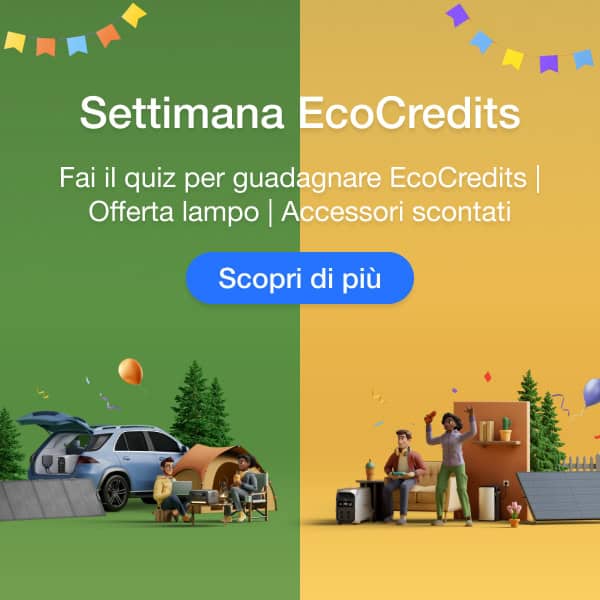Table of Contents
Stepping into the wilderness alone is a true escape that allows you to enjoy a deep connection with the world around you. But as all solo adventurers know, there’s much more to solo camping than grabbing a tent and hitting the trail.
Plan and take extra precautions before you go on a camping trip alone to ensure the best experience. Here are ten insights designed to make your solo camping trip both exhilarating and safe.
What Are the Benefits of Solo Camping?
Solo camping provides a different experience than camping with a group – it allows you to connect deeply with nature and test your camping skills. Do things how you want to with limited stress and come out with self-confidence after a few days of peace and solitude.
Take Things At Your Own Pace
In the world of solo camping, time slows down. You set your schedule, and there’s no one around to rush you. This luxury allows you to enjoy nature without the constraints and pressures of modern life. You can do things exactly how you want: choose the campsite you like best, leave at the time that’s most convenient for you, cook your favourite foods, listen to the music of your choosing, and create the precise experience you’re looking for.
Connect Deeply with Nature
Without the distractions of companionship, your senses sharpen, and you become more attentive to the outdoors’s sights, sounds, and smells. There are no conversations with others, just silent communication with the world around you. The stars seem a little brighter, and the air may feel a bit more still, leading to a profound connection with the environment you’ll carry with you long after the adventure.
Put Your Camping Skills to the Test
How good of a camper are you? Camping alone is a great way to find out. Solo camping will likely push your boundaries as a camper, requiring you to rely on your skills and problem-solving abilities. Overcoming these challenges can be incredibly rewarding, and it highlights areas where you’ll want to improve before your next solo trip. If you’re struggling to set up a tent or light a fire alone, you’ll ensure you have these skills mastered to improve your experience next time.
Boost Your Self-Confidence
Camping alone is no walk in the park. As mentioned, it’ll put your outdoor skills to the test. But on the other side of that coin is a sense of accomplishment and pride in yourself when you’re packing up to head home, knowing that you completed this adventure all on your own – proof that you can accomplish difficult tasks.
Setting up camp alone can significantly raise your self-assurance and provide a sense of achievement. If you’re looking for a confidence boost, solo camping can be a great way to get there.
Limited External Stressors
People have different camping styles, and in group settings, that can lead to annoyance among the group or stress you want to avoid while among the beauty of nature. The absence of social pressures can reduce stress levels, allowing you to experience greater peace and relaxation. As long as you’re confident in your camping abilities, you should enjoy a peaceful trip and return home feeling refreshed.
Time to Reflect in Solitude
There’s quiet at home, but there’s an entirely different kind of quiet when you’re alone in the middle of nature, surrounded only by plants, animals, and the earth. Solo camping gives you a chance to disconnect from the noise of everyday life and spend quality time with your thoughts, finding a sense of peace that’s difficult to come by in the business of everyday life.
Top 10 Solo Camping Tips
Ready to embark on your first solo camping trip? Learn from the pros who do it frequently, and use these top tips to make your journey enjoyable, from bringing a pet to sharing your location.
Pack Light
One of the cardinal rules of camping is to pack only what you need, and it’s even more crucial when going solo. Plan your essentials wisely to avoid carrying unnecessary weight. Start by selecting lightweight and multi-purpose gear, such as a versatile tarp for shelter from rain or ground cover. Consider a hydration backpack that can carry your things while keeping drinking water nearby.
Since it’s just you, your packing should be lighter already. You only need one sleeping bag, one water bottle, enough food and water for one, etc. While this won’t matter as much if you’re car camping, those who plan to backpack to their campsite will need to whittle their supplies down as much as possible since you’ll have to carry everything you bring.
Bring a Pet to Ease You Into It
Just because you’re camping without other people doesn’t mean you have to be entirely alone. Bringing your dog with you is a great way to ease yourself into being alone in the wilderness yet still having some protection and companionship. Plus, hiking with a pet is always more fun, and you’ll have a cuddle buddy to keep warm at night.
Dogs have much better hearing than humans, so if you’re scared of things that go bump in the night, you can rest assured your dog will alert you to anything happening outside your tent you may not be aware of.
Pick Somewhere Familiar and Close to Home
Starting in a well-known location close to home can be a smart tactic. It reduces anxiety and lets you become accustomed to the solo camping routine without an overwhelming change in scenery or climate. Choosing a campsite that you’ve stayed at before with others will ensure you already know the lay of the land, and picking one that’s not far from home will keep you close to friends and family in case of an emergency.
Plus, you won’t have to spend long hours getting to and from your campsite, making it a shorter trip that’s more about getting familiar with the experience than going somewhere in the middle of nowhere.
Always Share Plans and Location With Someone
Even if you’re going out to find some alone time, others should know where you’ll be in case of emergencies. Use your smartphone’s location services to share where you’ll be with someone you trust. Tell them the name of the campsite, and if you have service, text them to tell them your campsite number upon arrival.
Staying connected to the outside world in some way during your stay will enhance safety, so be sure to bring a power supply, such as a portable power station like those from the EcoFlow RIVER 2 Series, which are lightweight and portable. If you’re planning a long solo trip, camping generators such as the EcoFlow RIVER 2 Series Solar Generators will allow you to recharge your power station and maintain power the whole time. That way, you can keep your phone charged for safety.
Prioritise Safety
This is non-negotiable. Safety should be your first thought on your first camping trip alone. Bring a first aid kit, check the weather forecast, and try to pitch your tent where you’ll be visible to others. Make sure at least one other person knows where you’re camping and when to expect you back. Stick to popular hiking trails where other hikers will be, and always be aware of your surroundings.
Bring bear spray, and learn how to respond if you spot a bear while camping. Use lights at night to see around your area, lock your car, use practical fire safety skills, and consider bringing items for personal protection, such as pepper spray.
Know How to Use Your Gear
Test your gear before leaving, and make sure you know how to operate it. You don’t want to be fumbling around and struggling on your own. Learn how to set up your shelter, start a fire, purify water, and use any other equipment you plan to bring. Don’t let your solo camping trip be the first time you ever set up your one-person tent. Only bring items you feel confident using without anyone else’s help.
For example, if you’re bringing an EcoFlow Smart Generator (Dual Fuel) but have only ever used a solar generator in the past, you may struggle with petrol or propane refuelling. You don’t want to be without access to power, so learn how to operate each piece of equipment you bring.
Bring Entertainment
Being alone doesn’t have to mean being bored. If you need more to do than simply enjoy the views and sounds of nature, bring a good book, a journal, or a musical instrument to keep yourself entertained after the sun goes down. Other options could be an iPad with your favourite movie downloaded, painting or drawing supplies, a portable Bluetooth speaker to listen to your favourite music or a craft you’re working on.
Be Prepared to Solve Problems
Camping always comes with hidden challenges; when going solo, you’re the only one around to solve them. That’s both good and bad news – it allows you to innovate and problem-solve, but it also means there’s no one else you can call in for backup if you get stuck on a problem.
From weather shifts to unexpected wildlife encounters, you never know what might happen. Develop a plan for common issues and trust your ability to adapt and handle them. Embrace creativity and know that you’ll always figure it out one way or another.
Don’t Be Afraid of the Dark
Nighttime in the wilderness can be an entirely different world. Solo camping might not be for you if you’re afraid of the dark. Familiarise yourself with nature’s night sounds and shadows to conquer any fear of the unknown. Bring camping lanterns or string lights to keep your campsite lit up once the sun goes down, and keep a headlamp inside your tent in case you need to leave the tent at night.
Plan Easy Meals
Solo camping isn’t the time for gourmet dinners. Bring simple, nutritious food that won’t require you to battle a portable stove for three hours. The beauty of camping alone is that your palate is the only one you’re catering to. Bring pre-made lunches and snacks, like sandwiches, trail mix, and protein bars, and plan to cook only one meal a day at your campsite. Pick a meal you love and is easy to make without many items, such as a bean burrito or fire-roasted sausages. And don’t forget the s’mores!
Frequently Asked Questions
Solo camping can be a deeply rewarding experience, but it isn’t for everyone. Just assess your comfort level with being alone in the outdoors. If you feel confident in your ability to manage things on your own and stay safe, why not try it? Start with a short, well-planned trip to see how you feel.
While solo camping is less common than camping in groups, a sizable community of enthusiasts finds joy and satisfaction in this independent form of outdoor adventure. It’s more popular among seasoned campers who know the ropes and appreciate the unique peace and solitude of being utterly alone in nature.
Final Thoughts
Solo camping offers a unique perspective that few other activities can match. It’s an incredibly freeing experience that can boost your overall well-being and appreciation for the world that’s much bigger than your own daily bubble. If the call of the wild is beckoning you, stay safe, be prepared, and plan it thoughtfully so you can enjoy the unique adventure.
Staying connected and with power can ease any discomfort of camping alone, so remember to bring a power supply like the portable power stations and solar generators from EcoFlow to make the experience more enjoyable.







